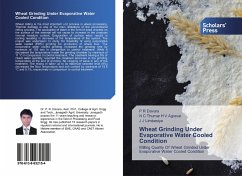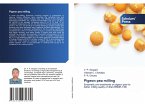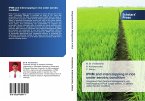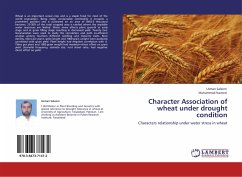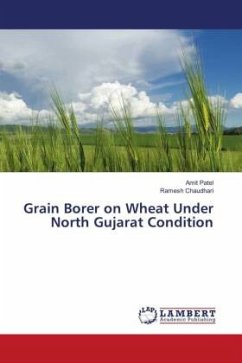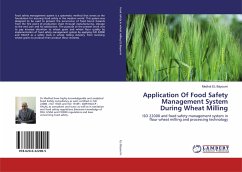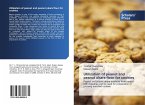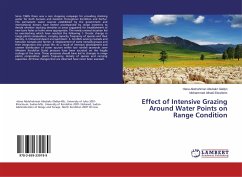Wheat milling is the most important unit process in wheat processing. Thermal damage is one of the main limitations of the conventional milling process. The application of water in the form of small droplets on the surface of the material will not cause to increase in the products internal moisture content. Evaporation of surface water results in cooling resulting in decrease of the temperature of the system. The project was undertaken to study the feasibility of using evaporative water cooled (EWC) grinding for production of wheat flour. The evaporative water cooled grinding increased the grinding time by maximum of 155 sec in comparison to control treatment. While it decreased the temperature inside the grinding chamber by maximum of 11 °C in comparison to control treatment. The treatment having a 9% of mixed water quantity, reported the maximum decrease in the grinding temperature at the end of grinding. No clogging of sieve in any of the treatment. The mixing of water up to its maximum selected level (9%) decreased the flour temperature and ash content by maximum of 15.5 °C and 0.1%, respectively in comparison to control treatment.
Bitte wählen Sie Ihr Anliegen aus.
Rechnungen
Retourenschein anfordern
Bestellstatus
Storno

